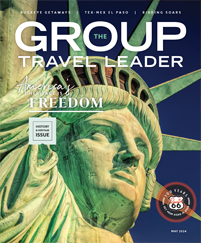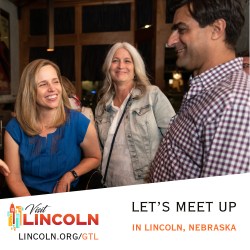Unveiling the Map
The journey brought us next to the Dead Sea, the lowest place on earth, where we enjoyed some time to relax at a seaside resort and float effortlessly on the water. An optional side trip took participants to Bethany Beyond the Jordan, an archaeological site on the banks of the Jordan River where Jordanians believe Jesus was baptized by John the Baptist. We spent the rest of the day in a series of discussions with local tourism leaders, including an event to formally launch the Meaningful Travel Map of Jordan.
“It’s the first time the industry and enterprises have come together to identify, explore and promote meaningful travel experiences in Jordan,” said Mike Rea, who served as CEO of Tourism Cares at the time and who helped spearhead the project. “This is good for communities, for travelers and for travel companies. These are experiences people want.”
In addressing the group, Muna echoed that sentiment.
“The world of tourism is shifting and changing. There are so many more than 12 social enterprises,” she said. “These are not charities. These are businesses. Tourists today are asking the right questions. They want to know where their money is going.”
Journey of Discovery
The next day, we departed in groups again for Petra, Jordan’s signature tourism attraction, stopping to visit additional meaningful tourism sites along the way. I took some time during the ride to talk to Muna and learn more about her story.
Muna grew up in Jordan and then came to Spalding University in Louisville, Kentucky, as part of a cooperative program between Spalding and her Jordanian high school. Spalding has since discontinued that program; Muna is lobbying the school to reinstate it. After finishing college, she returned to Jordan and began working with the Jordan Tourism Board.
“I grew in the ranks really quickly, very quickly, and really enjoyed my job,” she told me. “I worked really hard and managed a budget of $3 million.”
In her time with the tourism board, though, she noticed what she saw as a problem: Tourists followed well-worn paths from one key historic site to the next, staying in corporate hotels and having little meaningful interaction with the locals.
“All the tour operators were sending tourists on the classical routes, and that’s not getting money into the local communities,” she said.
After three years, she left to spend some time traveling Asia in search of more meaningful tourism interactions.
“I had some really impactful experiences in Cambodia,” she said. “I fell for the orphanage tourism trap. I went in and played with the kids, then left feeling awful about it. I started learning about the power of travel, the good and the bad, and decided I was going to do something about it.”
So in 2012, she returned home and started Baraka, a consulting company that helped destinations identify and develop meaningful, sustainable and responsible tourism enterprises.
“There was something I wanted to achieve, and I couldn’t find anyone to work with, so I decided to do it myself,” she said. “For years, my dad was begging me to get a job. But he was also my first investor.”
Baraka quickly grew (Muna now manages a team of more than 20 — and played a role in forming the Jordan Trail. Muna set out with the team at the beginning of the first through-hike on the trail back in 2016, intending to join them only for the first day. But the experience was so moving that she stayed for the full 44-day trek.
“It’s the best thing I have ever done in my life,” she said of the hike. “It allows people to fall in love with Jordan for the real thing that it is.”
After the trail, the Jordanian tourism community asked her to take the lead in identifying social enterprises to highlight on the Meaningful Travel Map of Jordan. She and her team spent months traveling the country and visiting local communities to identify places where tourists and locals could both benefit through authentic interactions.
“We wanted to stay away from the usual suspects and shed light on newer projects,” she said. “These aren’t charities. These are businesses, and we should treat them like businesses. Travelers need to understand that they have power. They decide what stays in business. If they give money to people, they turn it into a charity. But if you really want to support local communities, you do that by working with these businesses.”











